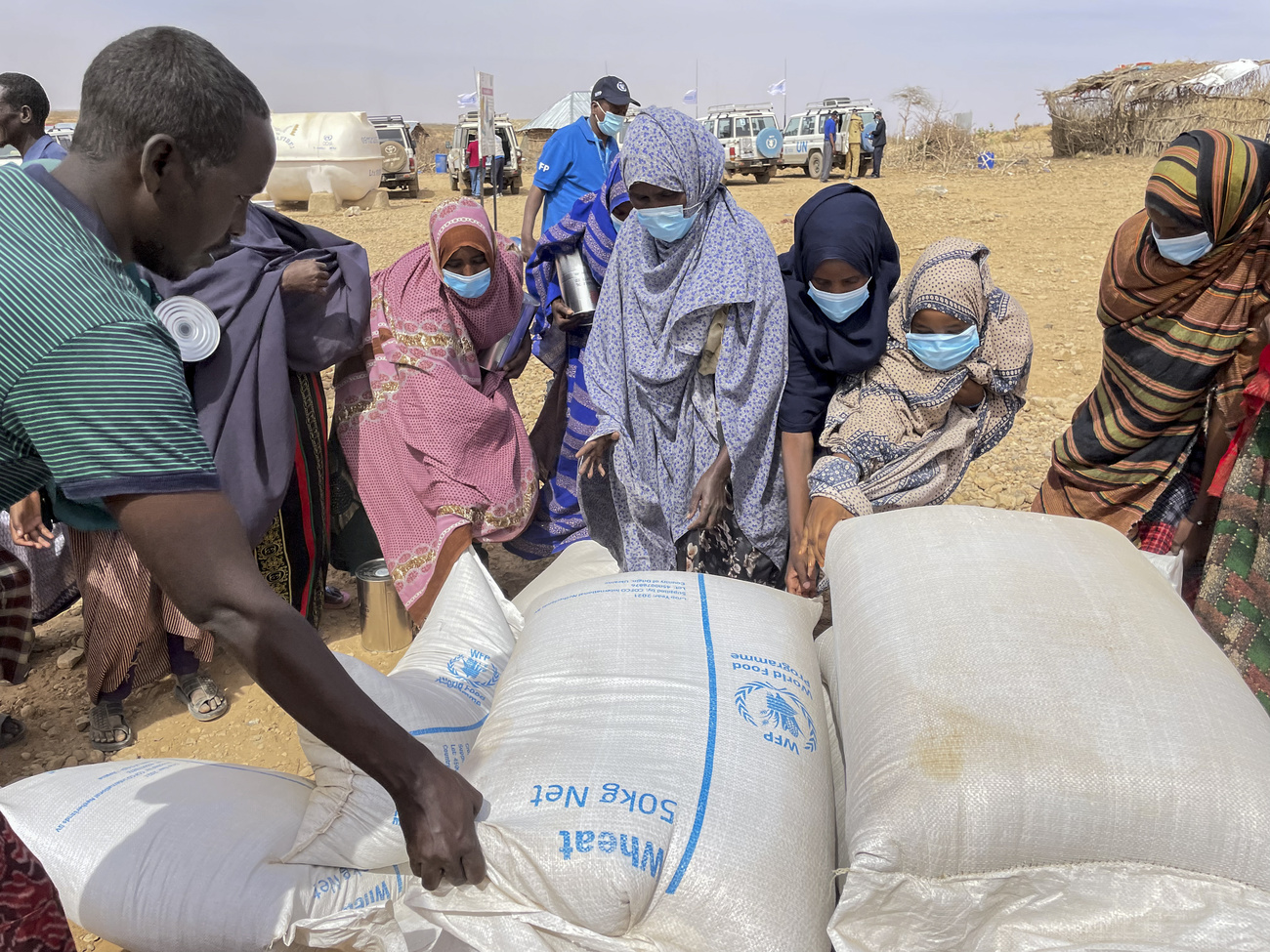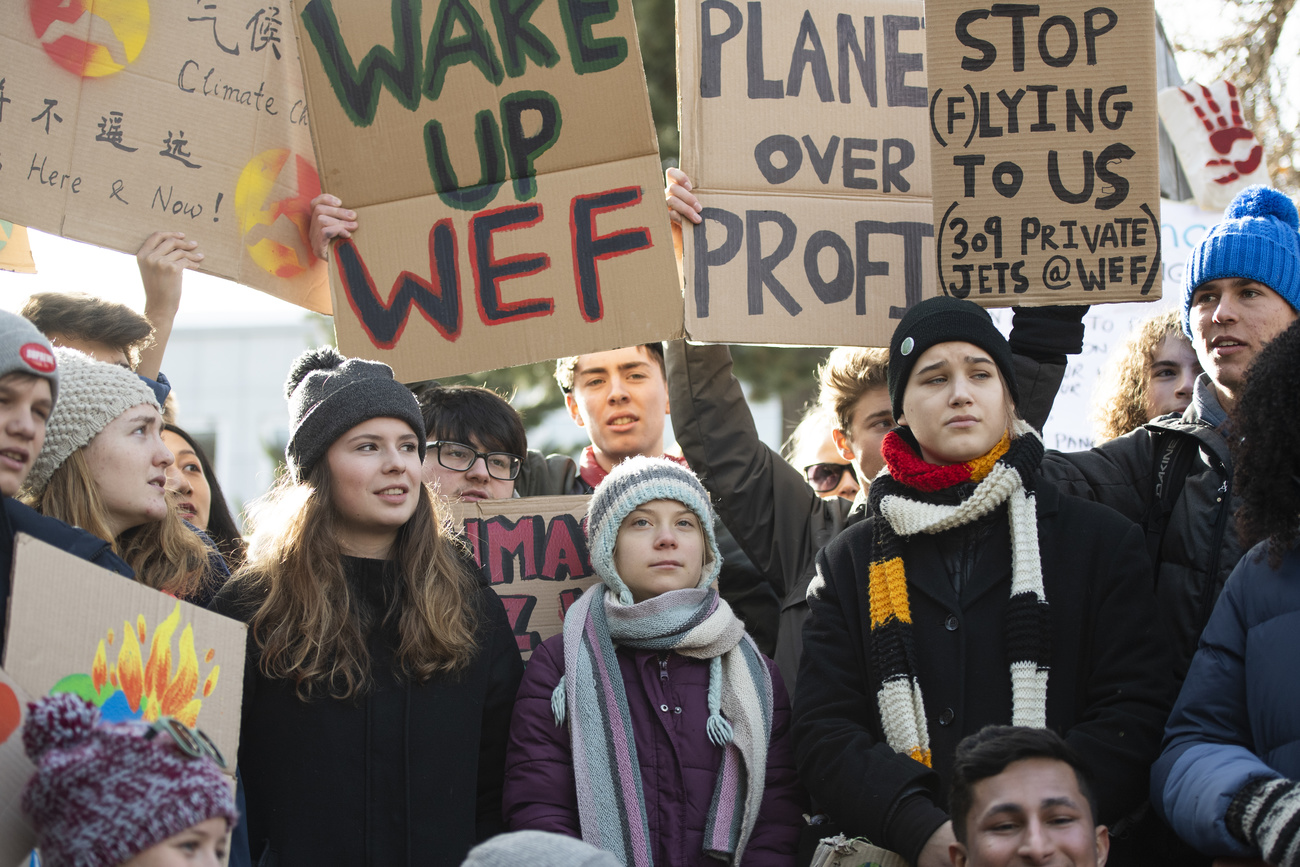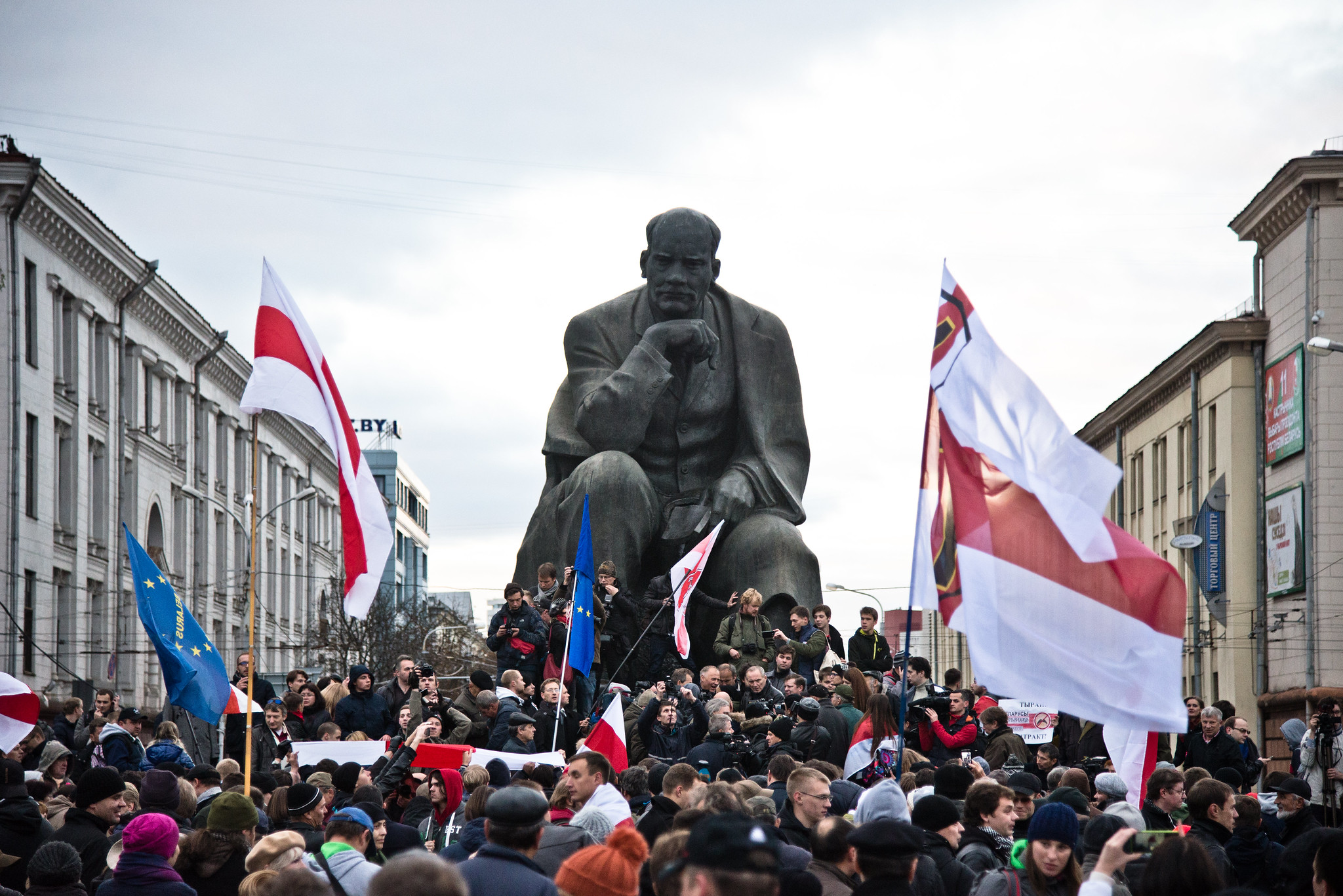The winners and losers of Putin’s war
Dear reader,
Business leaders are meeting in Davos. Can they influence the war? For now, the opposite is happening: the war is having an impact on the economy. Our SWI swissinfo.ch newsletter brings you Swiss perspectives on the war against Ukraine.
This time we look at the economic impact of Russia’s war on Ukraine.
“The war has disrupted the global supply of food, fuel, and fertilisers. This has made a dire situation worse for millions of people across the African continent and for the aid agencies struggling to help them,” writes our Geneva correspondent Dorian Burkhalter.
He analyses what this means for 40 million people in West and Central Africa, warning that they may not be able to meet their basic food needs.

More
How the war in Ukraine is fuelling the next global food crisis
Burkhalter’s analysis and Pauline Turuban’s graphics make it painfully clear what happens when nation states turn their focus back on themselves in a globalised world. The poorest are subject to even more neglect and we lose sight of the common good.
De-globalisation is a “trend amplified by the Covid pandemic and the economic fallout of Russia’s invasion of Ukraine”, write our WEF reporters Jessica Davis Plüss and Dominique Soguel-dit-Picard.

More
Can the WEF stop de-globalisation?
“Instead of “global citizens” gathering to talk about global problems in Davos, countries are retreating into their own corners.” Companies however remain globalised. “As global companies that could zig zag goods across the world became more powerful, governments became weaker,” write the authors.
Yet the sanctions against Russia show that – contrary to expectations – the West at least has been able to unite. But what do sanctions achieve? Our contributor Imogen Foulkes has been looking to history for answers.

More
What history tells us about sanctions
Foulkes’ view of the past and of various countries is sobering. So far, she says, there is little evidence that international sanctions alone achieve much. “But with Russia, where diplomacy is virtually non-existent and military intervention has been ruled out, they appear to be the only tool,” she writes.
Meanwhile, the demand for arms is rising worldwide – a direct effect of de-globalisation and Putin’s war. The result, as our journalist Samuel Jaberg found out, is that the Swiss arms industry can hardly keep up with production.

More
Ukraine war is a windfall for Swiss arms industry
The arms sector represents just under 10,000 jobs in Switzerland, a relatively modest figure compared to the 300,000 jobs in the Swiss mechanical, electrical and metal (MEM) industry.
And internationally, the Swiss arms industry does not play a major role. But nevertheless, there are frequent questions about Swiss arms exports to sensitive areas – despite tough regulation. “Switzerland pursues a dual policy of good offices and good business. I understand that this looks bad abroad,” says one of the critics, Green Party parliamentarian Fabien Fivaz.
And yet, “I believe that banking institutions are more dangerous to our liberties than standing armies,” wrote Thomas Jefferson, one of the Founding Fathers of the US, in 1816. Swiss banks in particular have a reputation as war profiteers. And after the Russian invasion, they again came in for criticism. Matthew Allen has been looking at what role Swiss banks played in the sanctions against Russia. He asked a simple question: are Swiss banks doing enough to freeze Russian assets?

More
Is Switzerland doing enough to freeze Russian assets?
The answer is complex. But one thing is certain for the author: “Switzerland has yet to convince some doubters that it can shrug off its dubious past reputation.”
You can find our ongoing coverage of the war against Ukraine here.

In compliance with the JTI standards
More: SWI swissinfo.ch certified by the Journalism Trust Initiative









You can find an overview of ongoing debates with our journalists here . Please join us!
If you want to start a conversation about a topic raised in this article or want to report factual errors, email us at english@swissinfo.ch.